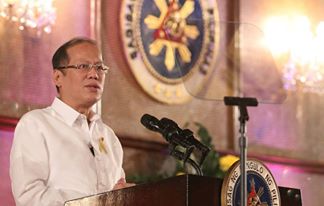Sub judice rule imposed on publicized speech
IN ESSENCE WHAT IS THE SUB JUDICE RULE?
In essence, the sub judice rule restricts comments and disclosures pertaining to pending judicial proceedings.
TO WHOM DOES IT APPLY?
The restriction applies not only to participants in the pending case, i.e., to members of the bar and bench, and to litigants and witnesses, but also to the public in general, which necessarily includes the media.
WHAT IS THE LEGAL BASIS OF THE SUB JUDICE RULE?
Although the Rules of Court does not contain a specific provision imposing the sub judice rule, it supports the observance of the restriction by punishing its violation as indirect contempt under Section 3(d) of Rule 71:
Section 3. Indirect contempt to be punished after charge and hearing. – x x x a person guilty of any of the following acts may be punished for indirect contempt:
x x x x
(d) Any improper conduct tending, directly or indirectly, to impede, obstruct, or degrade the administration of justice[.]
WHAT IS THE USUAL DEFENSE OF PERSONS FACING CHARGES FOR INDIRECT CONTEMPT FOR VIOLATION OF THE SUB JUDICE RULE?
Persons facing charges for indirect contempt for violation of the sub judice rule often invoke as defense their right to free speech and claim that the citation for contempt constitutes a form of impermissible subsequent punishment.
IS THIS A VALID DEFENSE?
We have long recognized in this jurisdiction that the freedom of speech under Section 4, Article III of the Constitution is not absolute. A very literal construction of the provision, as espoused by US Supreme Court Justice Hugo Black,[1][1] may lead to the disregard of other equally compelling constitutional rights and principles. In Vicente v. Majaducon,[2][2] this Court declared that “[the freedom of speech] needs on occasion to be adjusted to and accommodated with the requirements of equally important public interests such as the maintenance of the integrity of courts and orderly functioning of the administration of justice.” Courts, both within and outside this jurisdiction, have long grappled with the dilemma of balancing the public’s right to free speech and the government’s duty to administer fair and impartial justice. While the sub judice rule may be considered as a curtailment of the right to free speech, it is “necessary to ensure the proper administration of justice and the right of an accused to a fair trial.”[3][3] Both these latter concerns are equally paramount and cannot lightly be disregarded.
IS THE SUB JUDICE RULE IMPOSED ON ALL FORMS OF SPEECH?
No. Only on publicized speech. The Constitution simply gives the citizens the right to speech, not the right to unrestricted publicized speech.
WHAT IS PUBLICIZED SPEECH?
Publicized speech should be understood to be limited to those aired or printed in the various forms of media such as television, radio, newspapers, magazines, and internet, and excludes discussions, in public or in private, between and among ordinary citizens.
IN CRIMINAL PROCEEDINGS WHAT ARE PROHIBITED PUBLICIZED SPEECH?
In so far as criminal proceedings are concerned, two classes of publicized speech made during the pendency of the proceedings can be considered as contemptuous:
first, comments on the merits of the case, and
second, intemperate and unreasonable comments on the conduct of the courts with respect to the case.
Source: jabbulao.com
Read more on the supplemental opinion by J. Brion

